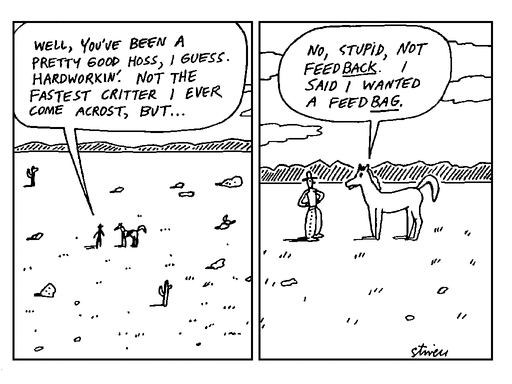WIWDD*, #3: Avoiding Conflict
|
|

Caption: A corner of the “Thomas-Kilmann Conflict Mode Instrument”
The first two of my WIWDD* reflections are here and here.
This third reflection is about avoiding conflict.
I made a case study of it to use in my teaching and titled it Jack and Jill.
Like the nursery rhyme, it did not work out well: Jack “fell down and broke his crown and Jill came tumbling after.”
Jill was a department head who had long used her negativity to get what she wanted. Jack was me, her supervisor.
I’d gone along with Jill because – her dog in the manger attitude aside – she and her department did a good job. Unlike some aggrieved bureaucrats, she did not punish her clients.
I stayed pretty much silent on her negative views and of her victimhood cultivation. I largely ignored the real possibility that her negative attitude permeated the work of the department and her peer relationships.
Let’s be honest, I obviously was avoiding a “difficult conversation”.
At least I could have made an effort to help, and not wait until it was too late to do anything.
I think Jill trusted very few people and – based on her gloomy interpretations of others’ actions – very likely had a touch of paranoia.
Alas, I said nothing.
If I thought about it, it was that probably things would get better. Given my strong support for her department and its mission, surely she would gain a sunnier disposition. Dream on.
Jill firmly believed, I think, it was her whining and complaining that got things for her department.
And, my avoiding a difficult conversation was encouraging the bad behavior.
Finally, I did take action when I found out she’d been fudging her production statistics.
Following a department heads meeting about our organization wide budget crunch in which she displayed a pit bull territoriality and offered no help, I asked for her to come speak with me.
Exasperated, I told her that I was disappointed and embarrassed with how she constantly complained in meetings. I then asked her since this job was so difficult whether she would like to step down and let someone else do it.
I had no one in mind, but thought maybe she’d opt for a break.
Wrong!
Given her probable paranoia, she thought I was attacking her unfairly and that I was wanting to fire her. (I suppose I was.)
Afterwards, I learned that she complained bitterly about me to my boss.
What would I do differently?
First, I should have asked my boss for guidance before having it out with Jill.
I should have known there was no easy fix and that my confronting her would have repercussion.
Nor should I have held the meeting while angry.
Years earlier, when I hired her, I should have made clear what I expected from my direct reports. Namely, I did not want to hear complaints unless they came with solutions. And, if there were no solutions, then we needed to move on and focus the discussion on the doable.
If I had started giving Jill feedback sooner, maybe we’d not have had the blow up.
For example, I could have asked her early on if she would be open to my observations on how she interacted with her peers.
If she agreed, I’d tell her what she did well and what she could have done better.
No telling the outcome, but maybe we would not have had this unhappy ending. A year later she left for another organization and rarely spoke to me except when obligated to do so.
Interestingly, when I used the Jack & Jill case study in a management workshop the participants sided with Jill and blamed Jack for the problem.
I can see why.
But, what I found a little hard to believe was that they (unlike Jack) would confront Jill immediately and give her guidance on how to improve the relationship.
Most managers – not just Jack -have a hard time with conflict; of the five conflict modes - competing, collaborating, compromising, accommodating and avoiding - the latter three see a lot more use than does the best option, collaborating.

Caption: Don't we all?
*WIWDD=What I Would Do Differently
Copyright All Text John Lubans 2020
 John Lubans - portrait by WSJ
John Lubans - portrait by WSJ